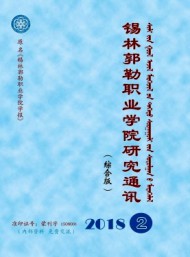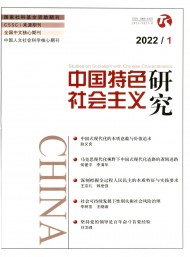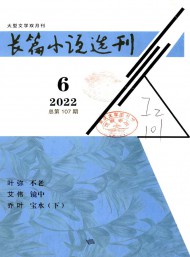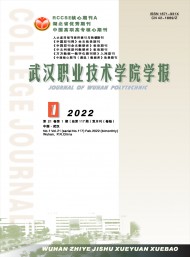八年级上册英语范文
时间:2023-03-25 00:50:30
导语:如何才能写好一篇八年级上册英语,这就需要搜集整理更多的资料和文献,欢迎阅读由公务员之家整理的十篇范文,供你借鉴。

篇1
一个人的知识面是一个圆圈,知识储备越多,圆圈越大,接触到的面积便越广阔,便能掌握和窥视更多的机会。下面小编给大家分享一些英语八年级上册知识,希望能够帮助大家,欢迎阅读!
英语八年级上册知识1短语归纳
stay at home待在家里
take the bus乘公共汽车
tomorrow night明天晚上
have a class party进行班级聚会
half the class一半的同学
make some food做些食物
order food订购食物
have a class meeting开班会
at the party在聚会上
potatochips炸土豆片,炸薯条
in the end最后
make mistakes犯错误
go to the party去参加聚会
have a great/good 玩得开心
give sb.some advice给某人提一些建议
go to college上大学
make(a lot of)money赚(许多)钱
travel aroundthe world环游世界
work hard努力工作
a soccer player一名足球运动员
keep…to oneself保守秘密
talk with sb.与某人交谈
in life 在生活中
be angry at/about sth.因某事生气
be angry with sb.生某人的气
in the future在将来
run away逃避;逃跑
the first step第一步
in half分成两半
solve a problem解决问题
school clean-up学校大扫除
ask sb.to do sth.要求某人做某事
give sb.sth.给某人某物
tell sb.to do sth.告诉某人做某事
too…to do sth.太……而不能做某事
be afraid to do sth.害怕做某事
advise sb.to do sth.劝告某人做某事
It’s best (not) to do sth.最好(不)做某事
need to do sth.需要做某事
语法讲解
由 if 引导的条件状语从句 (主将从现)
if 用做连词时,可以表示“如果;假如”,用来引导一个条件状语从句。如:
I will go if he asks me.
If you eat bad food, you may be ill.
注意:在主句和条件状语从句中的动词都表示将来的动作时,主句中常用一般将来时,含有情态动词的句子或祈使句,也可以是谓语含有want, hope,wish等动词的句子,但从句中常用一般现在时代替将来时。如:
We will come to see you if we have time.
You won’t be able to pass the exam if you don’t work hard.
I hope to visit her if I am free.
1、I
think I am going to the party with Karen and Ann.
分析:
be going to do sth.将要、打算做某事。如:
I am going to do some shopping with my mother.
辨析:be going to and will.
be going to and will 两者都可以表示将来,其区别如下:
be going to 常用于事先经过的打算、计划或意图,也可用于根据某种迹象将要发生的动作。如:
Why are you taking down all the pictures?
I am going to repaint the wall.
L ook at the dark clouds in the sky.I t ’ s going to rain.
will 常用于不受人的主观意愿影响的单纯将来,也可用于条件状语从句中,还可以表趋向或习惯的动作。如:
Tomorrow will be Teacher ’ s Day.
I f it doesn ’ t rain tomorrow, we will go to the zoo.
W e will die without air or water.
2、Half
of class won ’ t come.
分析:
① half, adj and n.一半(的)。 h alf 常用于名词或修饰名词的冠词前面,即half a/an/the/one ’ s +n.还可以用于a half +n.这中结构。如:
P lease cut the cake into halves.
T he little boy drank half a bottle of water.== the little boy drank a halfbottle of water.
H alf of the children are from Chinese .
注意:half 短语作主语时,谓语动词与half后的名词保持一致
英语八年级上册知识2短语归纳
on Saturdayafternoon在周六下午
prepare for为……做准备
go to the doctor去看医生
have the flu患感冒
help my parents帮助我的父母
come to the party来参加聚会
another time其他时间
last fall去年秋天
go to the party去聚会
hang out常去某处;泡在某处
the day after tomorrow后天
the day before yesterday前天
have a pianolesson上钢琴课
look after照看;照顾
accept an invitaton接受邀请
turn down aninvitation拒绝邀请
take a trip去旅行
at the end of this month这个月末
look forward to盼望;期待
the opening of… ……的开幕式/落成典礼
reply in writing书面回复
go to the concert去听音乐会
not…until直到……才
meet my friend会见我的朋友
visit grandparents拜访祖父母
study for a test为考试学习
have to不得不
too much homework太多作业
do homework做家庭作业
go to the movies去看电影
after school放学后
on the weekend在周末
invite sb.to do sth.邀请某人做某事
what引导的感叹句结构:What+a/an+adj.+可数名词单数(+主语+谓语)!
What+adj.+名词复数/不可数名词(+主语+谓语)!
help sb.(to)do sth.帮助某人做某事
be sad to do sth.做某事很悲伤
see sb.do sth.see sb.doingsth.
the best way to do sth.做某事最好的方式
have a surprise party for sb.为某人举办一个惊喜派对
look forward to doing sth.期盼做某事
reply to sth./sb.答复某事/某人
What’s today?今天是什么日子?
What’s the date today? What day is it today?
语法讲解
1、prepare意为“准备”,强调准备的动作与过程。
宾语是这一动作的承受者。其后也可接双宾语,还可接不定式。 prepare for sth.为…准备好。for的宾语不是动作的承受者,而是表示准备的目的,即所要应付的情况。 / prepare to dosth 准备做某事。
prepare 强调准备的动作与过程。宾语是这一动作的承受者。其后也可接双宾语,还可接不定式。
get/be ready意为“准备好”,强调准备的结果。常见结构有:①beready(for sth.)②getsth.ready ③beready(for sth)④be get ready to do(准备干某事,乐于干某事)
We _____ the mid-term examination.Miss Li said, “Everyone should______beforeclass.
2.have
the flu 患感冒, have a cold 感冒 ,have a cough 咳嗽, have a fever 发烧 ,have a sore throat 喉咙痛, have a headache 头痛 ,have a toothache 牙痛,
3.hang
out 常去某处,泡在某处, hang on 紧紧抓住, hang about 闲荡, hang up 挂电话,悬挂,挂起
4.catch
you =see you = bye bye ,catch a cold感冒 , catch sb’s eye引起某人注意,catch the train 赶上火车
catch up with =keep up with 赶上,跟上 ,catch hold of=take hold of 抓住
5.accept
接受 , 反义词为: refuse。 accept指主观上愿意接受,receive 收到,指客观上收到或拿到,但主观上不一定会接受。I received his gift yesterday, but I wouldn’tlike to accept it.
(1) turn down = refuse 拒绝 turn up 放大调高 turn over 翻身 take turns 依次,轮流
(2) help sb.(to) do sth 帮助某人做某事 helpsb.with sth 在某方面帮助人 help oneself tosth 随便吃
(3)at the end of 在…末尾,在…尽头, bythe end of 到…末为止 in the end of 终于
6.surprised
形容词,感到意外的,主语是人be surprised to do sth 对做某事感到意外
surprising 形容词,令人惊讶的,主语是物 Thenews was surpring.surprise 名词,惊奇、惊讶 to one’ssurprise使某人吃惊,动词,使惊奇,使感到意外 It surprise sb to do sth.
7.look
forward to 期待,盼望,to 是介词,后跟名词,代词或动名词作宾语。
hear from sb.收到某人的来信 = receive a letter from sb.
hear of = hear about 听说
8.make
it 在约定的时间内到达,能够来 = arrive in time; Glad you couldmake it.
商量确定的时间,表示将来某项计划的安排,后接时间状语。 Let’s make it at seven o’clock on Tuesday.
成功办成某事 = succeed After yearsof hard work, he finally made it.
9.reply
回答,指用口头或书面形式回答,不及物动词 reply to sb/sth.对…..作出回答。
作及物动词,意为回答,回答说。作名词,意为:答道,回信,答复,后跟介词 to .
answer 是最普通的用语,包括口头,书面或行动的回答,可作及物和不及物动词。
英语八年级上册知识3短语归纳
milk shake奶昔
turn on接通(电流、煤气、水等);打开
pour…into…把……倒入……
a cup of yogurt一杯酸奶
a good idea好主意
on Saturday在星期六
cut up切碎
put…into…把……放入……
one more thing还有一件事
a piece of一片/张/段/首……
at this time在这时
a few一些;几个
fill… with…用……把……装满
cover…with…用……覆盖……
one by one一个接一个;逐个;依次
a long time很长时间
how many+可数名词复数 多少……
how much+不可数名词 多少……
It’s time (for sb.)+to do sth.到(某人)做某事的时间了
First…Next…Then…Finally 首先……接下来……然后…….最后……
want + to do sth.想要做某事
forget+to do sth.忘记去做某事
how + to do sth.如何做某事
need+to do sth.需要做某事
make+宾语+形容词 使……怎样
let sb.+do sth.让某人做某事
英语八年级上册知识4短语归纳
1.on
computer在电脑上 2.on paper在纸上 3.wake up醒来
4.live
todo 200 years old活动200岁 5.free time空闲时间
6.in
danger处于危险之中 7.on theearth在地球上
8.play
a part in sth.参与某事 9.in the future在未来
10space station太空站 11.computer programmer电脑编程员
12.look
for寻找 13.hundredsof许多;成百上千
14thesame…as…与……一样 15.getbored感到厌烦的
16.over
andover again多次;反复地 17.fall down倒塌
18.will+动词原形
将要做……
19.fewer/more+可数名词复数
更少/更多……
20.less/more+不可数名词
更少/更多……
21.have
to do sth.不得不做某事
22.agree
with sb.同意某人的意见
23.such+名词(词组)
如此……
24.play
apart in doing sth.参与做某事
25.There
will be + 主语+其他 将会有……
26.There
is/are +sb./sth.+doing sth.有……正在做某事
27.make
sb.do sth.help sb.withsth.帮助某人做某事
28.try
to do sth.尽力做某事
29.It’s+
adj.+for sb.to do sth.对某人来说,做某事……的。
英语八年级上册知识5短语归纳
1.grow
up成长;长大 2.every day每天
3.be
sure about对……有把握 4.make sure确信;务必
5.send…to…把……送到……
6.be able to能
7.the
meaning of……的意思 8.write down写下;记下
9.different
kinds of不同种类的 10.hardly ever几乎不;很少
11.have
to do with关于;与..有关系
12.ta
take up开始做;学着做
13.too…to…太……而不能……
14.be
going to+动词原形 打算做某事
15.practice
doing练习做某事
16.keep
on doing sth.不断地做某事
17.learn
to do sth.学会做某事
18.finishdoing
sth.做完某事
19.promise
to do sth.许诺去做某事
20.help
sb.to dosth.帮助某人做某事
21.remember
to do sth.记住做某事
22.agree
to do sth.同意做某事
23.love
to do sth.喜爱做某事
篇2
第二部分:知识及运用(30分)
V.单项选择:从下列各题所给A、B、C、D四个选项中选择一个可以填入空白处的答案。共15小题,计15分。
26.---Ithinkthatwatchingtoomany3-Dmoviesisbadoureyes.
---Iagreewithyou.
A.toB.forC.atD.with
27.---Myfriendlivesahappylife,hedoesn’thavemuchmoney.
---Ithinkhappinessismoreimportantthanmoney.
A.ifB.orC.becauseD.although
28.---hoursdoyouexerciseeveryweek?
---Seventoninehours.
A.HowmanyB.HowoftenC.HowmuchD.Howlong
29.---Wouldyouliketogotothebeachwithmethisweekend?
---Itgreat.Ithinkwewillhaveagoodtimethere.
A.looksB.soundsC.tastesD.feels
30.---Longtimenosee.wasyourvacation,Jim?
---Excellent.ThemuseumsinBeijingarereallygreat,doyouknow?
A.WhatB.WhereC.WhenD.How
31.---Icanwalkon.Ineedtohavearest.
---Comeon,we’llarrivehomesoon.
A.everB.sometimesC.usuallyD.hardly
32.---Idon’tlikethisplace.heremakesmehappy.
---Idon’tthinkso.Atleastthefoodhereisverydelicious.
A.AnythingB.EverythingC.NothingD.Something
33.---IamhealthybecauseItakemuchexercise.
---Youhaveagood.
A.habitB.activityC.resultD.answer
34.---Englishisdifficultforme.Idon’tknowhowtolearnitwell.
---YoucantrytolearnEnglishbyEnglishprograms.Itworks.
A.watchB.watchesC.watchingD.watched
35.---Marywasveryangrywithme.Sheaskedmegotoherhouse.
---IfIwereyou,Iwouldsaysorrytoher.
A.whydidn’tIB.whywasn’tIC.whyIdidn’tD.whyIwasn’t
36.---WhereismyiPadmini,Lucy?
---Idon’tknow.Maybetookit.
A.nooneB.anyoneC.everyoneD.someone
37.---I’mnow.Iwanttoeatsomething.
---Howcome?Youateahamburgerjustnow!
A.luckyB.freeC.fullD.hungry
38.---IsMr.Greena?
---Yes.Ifyouneedteethcleaning,youcanaskhimforhelp.
A.policemanB.dentistC.waiterD.teacher
39.---Thereiscandyathome.Iwanttobuysome.
---OK,butyoumusteatcandy.Lookatyou.Youaresofat!
A.less;littleB.little;littleC.little;lessD.less;less
40.---DoyouliketogotoBeijingorShanghaiforvacation?
---.Theyarebothwonderful.
A.OfcourseB.It’shardtosayC.Yes,IwillD.You’rewelcome
VI.完形填空:先通读下面的短文,掌握其大意,然后从各小题的四个选项中,选出一个答案。共15小题,计15分。
Doyourememberthenameofyourkindergarten(幼儿园)teacher?Iremember.HernameisMrs.White.
Idon’tremembermuchaboutwhatI41inherclass,butmymotheroncetoldmethatIusedto(过去常常)writealot.Iwouldbringback42Iwrote,andshewouldlookthroughitandfindmanymistakesinit.However,therewere43redcorrections(改正).Therewasoftena“star”andsometimesa“good”!It44mymotheralot.Soonedayshewentto45Mrs.Whitewhyshenevercorrectedmymistakes.
“Thechildrenarejustbeginningtoget46aboutusingwords.”Mrs.Whitesaid.“Idon’twanttomakethemloseconfidence(丧失自信心)47redcorrections.”
BecauseofMrs.White,I48worriedaboutwritingwhatImeant(意欲).AlthoughIcouldn’twritea49right,Igrewupwithconfidence.Iusedto50“beautiful”wrong.Icouldnever51thatthe“e”goesbeforethe“a”.Itmademyteacherinhighschoolvery52.Sheaskedmetouse“pretty”whenIwaswriting.Ididn’t53her.Ithink“pretty”is54tospell,butitdoesn’t55asmuchaswemeansometimes.Forme,lifeisn’t“pretty”,butit’s“baeutiful”.Oh,Imadethesamemistakeagain!It’s“beautiful”.
41.A.wonderedB.learnedC.missedD.used
42.A.whatB.whyC.whenD.any
43.someB.manyC.noD.any
44.A.taughtB.interestedC.paidD.worried
45.A.tellB.askC.showD.meet
46.A.popularB.surprisedC.excitedD.sorry
47.A.throughB.inC.onD.about
48.A.alwaysB.oftenC.sometimesD.never
49.A.wordB.diaryC.letterD.passage
50.A.hearB.putC.makeD.spell
51.A.wishB.thinkC.rememberD.like
52.A.tiredB.strictC.scaredD.angry
53.A.listentoB.talktoC.shouttoD.getto
54.A.fastB.easyC.goodD.natural
55.A.followB.haveC.bringD.practice
第三部分:阅读与写作(65分)
VII.阅读理解:读A、B两篇短文,根据短文内容选择答案;读C篇短文,将其选项中的五个句子还原到短文当中。共15小题,计30分。
A
Whatdidyoudoduringthevacation?
Iwashappyatthattime,becauseIhadsometimetocleanmyroomandtune(调音)myoldpiano.IwasjustalittlelazyandIdidn’tstudyanyEnglish.Ithinkitisonlybecauseitwasvacation.OnethingImissedwasmyswingdanceclasses.Anyway,IfeltgoodbecauseIrelaxedduringthevacation.
——Mary
IwenttoaJapantownwithmyfamilytovisittheCherryBlossomFestival.WeatesomedeliciousJapanesefood.AlsowesawaJapanesedanceshowthere.Itwasawonderfultrip.IhopeIcangothereagain,
——Jill
DuringthevacationIdidnothingspecial.Iwentonline,playedcomputergames,andcalledmyfriendsinHongKongandtalkedwiththem.Thereisaterribledisease(疾病)inHongKong.Iamquiteworriedaboutmyfriendsthesedays.
——Alex
MyfriendandIwenttothepark.Itwasanewparkforme.ItsnameisCandlestick.It’sveryfarfrommyhouse.Sowetookabusthere.Ittookaboutanhour.WewerethereonSunday.Lotsofpeoplewerehere.Somepeoplewerefishing.Isawamancatchabigfish.Wehadagoodtimeinthepark.
——Lyudmila
56.WhatdidMarythinkofhervacation?
A.Special.B.Tiring.
C.Full.D.Relaxing.
57.JilldidthefollowinginJapanEXCEPT(除了).
A.watchingadanceshowB.eatingsomeJapanesefood
C.havingswingdanceclassesD.enjoyingthecherryblossom
58.Duringthevacation,Alex.
A.gotaterriblediseaseB.didn’tgooutforatrip
C.talkedwithhisfriendsonlineD.didsomethingspecial
59.Lyudmilaandherfriend.
A.livenearCandlestick
B.sawfewpeopleinCandlestick
C.spentonehourfishinginCandlestick
D.wenttoCandlestickbybus
60.WhichofthefollowingisTRUEaccordingtothepassage?
A.Maryhadreallyabusyvacation.
B.LyudmilacaughtabigfishinCandlestick.
C.JillenjoyedherselfwhenshewasinJapan.
D.Alexisn’tworriedabouthisfriendsinHongKong.
B
LastMondaywedidasurveyabouthowoftenthestudentsdothehousework.Herearetheresults.
Moststudentsdothehouseworktwiceorthreetimesaweek.Theyoftencleantheirrooms.Somestudentsdothehouseworkfivetimesaweek.Theyoftencleanthefloor.Somestudentshelptheirparentsonthefarm.Theythinktheirparentsaretoobusy,sotheyhelpthem.
Theresultsfor“washclothes”areinteresting.Somestudentswashclothesonceortwiceaweek.TheyoftenwashclothesonSaturdaysorSundays.Somestudentswashclothesthreeorfourtimesaweek.Theyonlywashtheirownclothes.Butmoststudentswashtheirclothesonceaweek.AndtheywashclothesonSundays.
LiuYing,agirlinClass4,Grade8,haslotsofhouseworktodo.Shewashesthedishesandcleanstheflooreveryday.Sheoftencooks,sometimesthreetimesaday.Shesays,“Mymotherisn’thealthy.Myfatherworksinanothercity.SoIhavetodomostofthehouseworkathome.”
61.Fromtheresultsweknowstudentsdothehouseworkfivetimesaweek.
A.allB.mostC.someD.no
62.Somestudentshelptheirparentsonthefarmbecause.
A.theythinktheyareoldenough
B.theythinktheirparentsaretoobusy
C.theydon’thavetoomuchhomework
D.theirparentsaretooold
63.Howoftendomoststudentswashtheirclothes?
A.Onceaweek.B.Twiceaweek.
C.Threetimesaweek.D.Fourtimesaweek.
64.Fromthepassagewecanknowthat.
A.LiuYingisanunhealthystudent
B.LiuYingisgoodathomework
C.LiuYing’sfatherisunhealthy
D.LiuYinghastodomuchhousework
65.WhichofthefollowingisNOTtrue?
A.TheydidthesurveylastMonday.
B.Moststudentsdon’tdothehousework.
C.LiuYingisastudentfromClass4,Grade8.
D.LiuYingcooksthreetimesadaysometimes.
C
A.Walkingoutofdoorscanletyouenjoythescenery(风景)andgetcleanair
B.youwillforgetalltheworriesinlife
C.havingapicnicisthemostwonderfulthingtodo
D.youcantrywalkingfromyourhousetonearbyfriends’houses
E.it’sgoodforyourhealth
Therearemanykindsofsportssuchasswimming,footballandwalking.Doyoulikewalking?Walkingisagoodactivityand66.Whereveryoulive,youcanhaveawalkwithyourparents,classmatesorfriends.
Youcanstartwithshortwalksaroundyourhouse.Ifit’ssafe(安全的)enoughtodothat,67Ifyourschoolisn’ttoofarfromyourhome,youcanwalkthereeverydayinsteadoftakingthebusorridingabike.
Maybeyoustilldon’tknowthat68.Whenyouarehiking(徒步旅行)inthemountains,forests,orotherbeautifulplaces,itcankeepyouawayfromthingsthatoftenmakeyouunhappy.Also,69whenyouenjoythesceneryinthemountains.Youcanalsodoallkindsofthingswhilehiking,likehavingapicnic,singingsongsortakingpictures.Ithink70whenyouarehikinginthemountains.
VIII.写作:本大题共三部分,计35分。
A.A.根据所给音标、汉语或首字母提示写出下列句中所缺单词。共10小题,计10分。
71.IttookusaboutfourhourstogettothetofMountTai.
72.Ididn’teatdinner.NowI’mveryh.
73.DidyoueatBeijingd?It’sreallydelicious.
74.Everyonejumpedupanddowninewhentheyheardthegoodnews.
75.Thestudentoften(骑)mybiketoschoolinthepast.
76.Iwasvery(无聊)intheroombecauseIhadnothingtodo.
77.Thedog(死)becauseitwastoocoldthiswinter.
78.Thedancing[kɑmpə'tɪʃən]isonSeptember12th.
79.Canyouwritethewords['klɪəlɪ]?It’sdifficulttoread.
80.Thiskindofexerciseisgoodforyour[hɑːrt].
B.根据所给汉语完成下列句子。共5小题,计10分。
81.昨天汤姆和他的朋友们参观故宫了。(visit)
YesterdayTomwithhisfriends.
82.多吃蔬菜水果对你的健康有好处。(health)
Ittoeatmorevegetablesandfruit.
83.Tom和Sam一起勤奋。(as)
TomisSam.
84.我住在一个带游泳池的大房子里。(with)
Iliveinabighouse.
85.上周你去什么有趣的地方了吗?(interesting)
Didyougolastweek?
C.书面表达。共1题,计15分。
假如Helen是你的朋友,请你从以下几方面向大家介绍她。
在学校努力学习,平时喜欢看英文书,有时上网。
身体很健康,每周锻炼两三次,天天步行去学校。
篇3
Unit1第一课答案
Ⅰ、2、visitedthemuseum
3、wentcamping/wenttosummercamp
4、stayedathomeandwatchedTV
5、wenttothelibrary
6、wenttothepark
Ⅱ、1、Vicky
2、Alex
3、Emily
4、Sue
Ⅲ、1、No,hedoesn't.
2、Yes.Heboughtmanythingsforhisfamily.
3、Yes,hedid.HevisitedtheGreatWallandrodeabikeinBeijinghutong.
4、TheUSA,Beijing,Guizhou,HongKong.
Unit1第二课答案
Ⅰ、Regularverbs:
study-studied,visit-visited,
seem-seemed,climb-climbed,
enjoy-enjoyed,stop-stopped,
worry-worried,taste-tasted
Irregularverbs:
meet-met,swim-swam,
buy-bought,feed-fed,
keep-kept,eat-ate,
see-saw,read-read
Ⅱ、1、fed
2、keep
3、seemed
4、visited
5、swam
Ⅲ、anyone,Everyone,something,everything,nothing
Unit1第三课答案
Ⅰ、1、relaxing
2、expensive
3、special
4、exciting
5、bored
Ⅱ、1、HowarethefruitsinHongKong?
2、Howwastheweatheryesterday?
3、WhereisCentralPark?
4、WhodidyougotoMalaysiawithlastweek?
5、WhatdidtheydoinBeijing?
Unit1第四课答案
Ⅰ、1、Didyoulikeanythingduringthetrip?
2、Didhedoanythingspecialonvacation?
3、DidKevinmeetanyoneinterestingyesterday?
4、DidMikevisitanywherequietandbeautiful?
5、Didtheyfeelreallytired?
Ⅱ、A.difference.climb,top,excited,raining,enough,photos,taste
B.Onepossibleversion:
May1st
Ihadanexcitingtripwithmyfamilytoday.WewenttotheWestLakeinHangzhou.Itwassunny,sowedecidedtoridebicyclesaroundthelakeinthemorning.TheWestLakeisquitelarge.Myparentsfelttiredafterriding,butIfeltveryrelaxedbecauseIdosportseveryday.Isawmanybeautifulflowersalongtheway.Forlunch,wehadsomethingspecial-WestLakeFishinVinegarGravyandDongpoPork.Theytastedquitedelicious.Intheafternoon,wewentboatingandtookquiteafewphotos.Ireally
enjoyedmyself.
Unit1第五课答案
Ⅰ、1、H2、B
3、C4、G
5、D6、E
7、A8、F
Ⅱ、A.
Name Whendidhelshego? Whatdidhelshedo? Howwasthetrip?
Lisa lastsummer tookmusiclessonswithaMexicanguitarist;learnedaboutMexicanartandculture wonderful
James lastmonth stayedinthehotelasmuchashecould;methisMexicancustomers boring
篇4
二、选择填空(共25小题;每小题1分,满分25分)
A)单项填空从A、B、C、D四个选项中,选出可以填入空白处的选项,并将答案写在答题卷上。
21.TodayisawfuldaybecauseIcatchbadcoldandcoughalot.
A.a;anB.an;aC.a;/D.an;/
22.Johnhasagoodsenseofandheissuretofindournewhouse.
A.humourB.directionC.smellD.space
23.Goandseethephotoonthewallfor,boysandgirls!
A.yourselfB.itselfC.themselvesD.yourselves
24.TomiscrazyDIYandoftenmakesthingsoldclothes.
A.about;inB.of;forC.of;fromD.about;from
25.一Doyouhaveanyplansforthiswinterholiday?
一I'mnotsure.IgotoHainanwithmyfamily.
A.canB.needC.mayD.must
26.Ofthetwodresses,I'dliketochoosetheonetosavemoneyforahat.
A.cheaperB.moreexpensiveC.cheapestD.mostexpensive
27.Themotherpandawaseatingbamboothebabywasplayingwithaball.
A.whenB.sinceC.asD.while
28.Weshouldmakelawsourcitycleaner.
A.tomakeB.makeC.makingD.tomaking
29.Thetrappedmanwhenheheardpeopleweretryingtohelphimout.
A.camedownB.calmeddownC.brokedownD.cutdown
30.Amylookedthroughthequestionsandcouldanswerallofthem.
A.quick;easyB.quick;easilyC.quickly;easyD.quickly;easily
31.一Whataboy!Tomoftenleavesthingssomewhere.Pleasegivethebooktohim.
一OK.Thanksforyour.
A.careless;kindB.careful;kind
C.careless;kindnessD.careful;kindness
32.Unluckily,therainwhenIthecaratthistimeyesterday.
A.started;wascleaningB.started;cleaned
C.starts;amcleaningD.wasstarting;wascleaning
33.Thesentencestructureof“Doyouknowtheimportanceofthereserveforwildlife?”is.
A.S+VB.S+V+O
C.S+V+DO+OCD.S+V+P
34.Thesentencestructureof“IadvisehimtotakeacourseinDIY.”is.
A.S+V+DO+OCB.S+V+IO+DO
C.S+V+PD.S+V+O
35.一Imissedthebeginningofourschoolfootballmatchyesterday.
一Itwassowonderful.
A.Noproblem.B.Comeon.C.Forgetit.D.Whatapity!
B)完形填空先通读下面的短文,掌握其大意,然后在每小题所给的A、B、C、D四个选项中选出可以填入空白处的选项,并将答案写在答题卷上。
Intoday'sworldmanypeopleseemtobehungryformoney.Moneyis36forthepoor.Butevenifapersonhasalreadygotplentyofmoney,heorshecan'thave37.
Ifmoneywereeverything,allmillionaires(百万富翁)wouldhavereallove,38friend-
ship,goodhealthandalonglife.39thisisnotalwaysright.“Iloveyou”hasmorepleasure
thananythingelse.Canwebuylove?I'mafraidnot.Lovemeansto40,nottotake.Toeveryperson,healthandalonglifeareprobablythebestthings.Well,canwebuyhealthandalonglife41money?Theansweris“No”.
Ofallthelongestlivingpeopleintheworld,42ofthemaremillionaires.43toomuchmoneycancausebrotherstoquarrel,marriagetoend,loverstohate,andstrangers(陌生人)to44.Nomatterhowmuchmoneyyouhave,itisstillnotenoughtomakeyoua45personifyouhavenoonetolaughwith,noonetocryfor.
36.A.uselessB.unimportantC.badD.good
37.A.somethingB.anythingC.nothingD.everything
38.A.hopefulB.correctC.trueD.active
39.A.AndB.SoC.OrD.But
40.A.getB.giveC.acceptD.own
41.A.forB.inC.withD.by
42.A.littleB.fewC.manyD.much
43.A.DreamingB.DreamC.DreamedD.Dreamt
44.A.jumpB.runC.leaveD.fight
45.A.happyB.funnyC.healthyD.lucky
三、阅读理解(共12小题;每小题2分,满分24分)
阅读下面短文,从每小题所给的A、B、C、D四个选项中,选出选项,并将答案写在答题卷上。
A
Inasmallvillage,therelivedaman.Hewoulddonothingalldaybutdaydream.Wheneverhewashungry,hewouldgoout,begfor(乞讨)food,comebackandhangaround.
Onesunnyafternoon,hewasveryhungry.Withgreatdifficulty,hegotup,tookoutabowl
andwentouttobeg.Bybeggingthewholeday,hefinallygotapotfullofmilk.Hehung(悬挂)thispotontheceiling,laydownonhisbedandstarteddaydreamingagain.
“Thispotofmilkisgoingtomakemerich,”hethought.“Icanmakebutterfromthemilk.
ThenIwillbeabletomakeghee(印度酥油)andgotothemarketandselltheghee,”hisdream
continued.“WiththemoneyIget,Iwillbuyapairofgoats.Theywillhavekidsaftersixmonths.
SoonIwouldhavealargenumberofgoats.”
“ThenIwillbuysomemorecowsandownafarmhouse.Iwillstartadairy(奶制品)farm.
OnceIhavemuchmoneyIwillopenasweetshopinthemiddleofthevillage.Iwillmakesweets
outofthecow'smilk,”themankeptsmilingtohimself.“HowsmartIam!”hethought.Lostinhis
thoughts,hekickedouthisfoot,brokethepotanddrenched(弄湿)himselfinmilk.Hesawthe
brokenpotandcried.Helostwhateverhehad.
46.Afterthemancamebackwiththepotofmilk,hebeganto.
A.daydreamB.makebutterC.drinkitD.makeghee
47.Whathappenedtothemanattheendofthestory?
A.Hedrankallthemilk.B.Hebrokehisfoot.
C.Hedranknothing.D.Helosthismoney.
48.Whichofthefollowingwordscandescribetheman?
A.Lazy.B.Smart.C.Polite.D.Generous.
49.Wecaninfer(推断)fromthestorythattheman.
A.becamerichintheendB.wasstillabeggar
C.ownedabigfarmD.hadlotsofgoats
B
Sure,it'sgoodtogetalongwellwith(相处融洽)yourteachersbecauseitmakesthetimemore
pleasantintheclassroom.
Andyes,it'sgoodtogetalongwellwithyourteachersbecauseit'ssmarttolearnhowtoget
alongwellwithdifferentkindsofpeopleyou'llmeetinyourlife.
Infact,ifkidsgetalongwellwiththeirteachers,theywillnotonlylearnmore,butalsofeel
morecomfortableaboutaskingquestionsandgettingmorehelp.Thismakesiteasierforthemto
learnaboutnewthingsanddotheirbestontests.Ifyouhavethiskindofrelationship(关系)witha
teacher,youcanturntohimorherwithproblemsinschool.
Itistruethatteacherswanttogetalongwellwithyouandenjoyseeingyoulearn.Butteachersandstudentssometimeshavepersonalityclashes(个性冲突),itcanhappenbetweenanytwopeople.Ifyoushowyourteacherthatyouwanttomakethesituation(情况)better,heorshewillprobablydoeverythingpossibletomakethathappen.Byhelpingwithaproblemlikethis,youlearnsomethingabouthowtogetalongwithdifferentpeople.
However,ifacertainteacherisn'tyourfavorite,youcanstillhaveasuccessfulrelationship
withhimorher,especiallyifyoufinishyourduties(责任)asastudent.
50.Thepassageisusefulto.
A.teachersB.advisersC.parentsD.students
51.Accordingtothepassage,gettingalongwellwithyourteacherswillmakeyou.
A.getthebestscoresintheexams
B.havemorepleasanttimeintheclassroom
C.havenoproblemswithstudy
D.getabetterseatintheclassroom
52.Theunderlinedword"that"inthefourthparagraphmeans.
A.thepersonalityclashes
B.gettingalongverywellwithclassmates
C.abetterrelationshipbetweenyouandyourteacher
D.thehappytimeintheclassroom
53.Inthepassage,thewritermainlytalksabout.
A.howtofinishyourdutiesasastudent
B.howtomakethetimeintheclassroommorepleasant
C.howmuchthestudentswanttogetalongwithteachers
D.theimportanceofagoodrelationshipwithteachers
C
Youlovereading,butyou'vereadallyourbooksfourtimes,andaretiredofreadingthesame
ones.You'replanningtogotothelibrary,butdon'tknowwhatkindofbookstoget.Withtheright
knowledge(知识),it'seasytochooseagoodbook!
Answerthesequestionsfirst.Whatareyourinterests?Typeyourhobbiesintoyourlibrary
catalogsearch.Bydoingthis,youwillfindbooksthatyoumightlike.
Searchyourhousenext.Oftengoodbooksarequietlycollectingdust(灰层)inyourownhouse.Maybeyouforgetaboutone,orsomeonewhoislivingwithyouhassomegoodbooks.Alsobysearchingyourhouse,youcanfindsomebooksthatyoucanread,andtheywon'tevencostyouanymoney.
Thenjoinabookclub,please.Beingabookclubmemberisoftenawaytoexperience(体验)
newbookswithothermembers.Joiningabookcluborsettingupabookclubhelpsyouknowwhoelselikesthesamebooksasyou,youcanalsoreadanddiscussthebookswithothers.
Finally,readthefirstpartofeachbook.Ofcourse,ifyouhavemanybooks,thiscanbe
time-consuming.Readingthefirstpartofabookcanhelpyouknowwhatbooksandtypesofbooksthatyoulike,andyouwon'thaveahardtimelookingforbooksagain.
54.Thisarticleismainlywrittentohelpyou.
A.buyagoodbookB.readagoodbook
C.chooseagoodbookD.borrowagoodbook
55.Theunderlinedsentenceinthethirdparagraphmaybemeansthat.
A.youdon'toftencleanthehouse
B.youhaven'ttouchedthebooksforalongtime
C.yourfriendsdon'treadyourbooks
D.yourfriendsdon'tvisityourhouse
56.WhatisNOTmentionedaboutjoiningabookclub?
A.Experiencingnewbookswithothermembers.
B.Knowingwhoelselikesthesamebooksasyou.
C.Readinganddiscussingbookswithothers.
D.Helpingyoumakemoreandmoreclosefriends.
57.Whatdoestheunderlinedword“time-consuming”inthelastparagraphmean?
A.Usingalittletime.B.Wastingalittletime.
C.Takingmuchtime.D.Savingmuchtime.
四、单词拼写(共10小题;每小题1分,满分10分)
根据所给汉语注释或对话情景,在答题卷标有题号的横线上,写出空缺处各单词的正确形式。每空只写1个词。
58.Maxwrotedowneverything(清晰地)onthenotebook.
59.Bearsoftenmovearoundslowlyinthe(白天).
60.Theexcitedfans(欢呼)asthestarcameintothetheatre.
61.Readsome(笑话)andlaughoffyourworries.
62.Lindakept(摇动)herheadandsaidnothing.
63.The(有雨)weatherwilllastforamonth.
64.NotonlythetwinsbutalsoNancycan(理解)theimportanceofthewetlands.
65.一TheEnglishtestiscoming,Iamverynervous.
一Don'tworry.Themorecarefulyouare,thefeweryou'llmake.
66.一Therewillbeevenspaceforwildanimalsifwecutdownmoretrees.
一Yes,wemusttakeactiontoprotectwildanimals.
67.一Whatareyoulookingfor?
一Isawanumberofapplesontheplate,butnowthereisleft.
五、句型转换(共4小题;每空1分,满分10分)
按要求改写下列句子,并将答案写在答题卷上。
68.Weshouldprotecttigersanddon'thuntthemfortheirfurorbones.(同义句转换)
Weshouldprotecttigershuntingthemfortheirfurorbones.
69.HelendidherhomeworkmorecarefullythanMay.(同义句转换)
Maydidn'tdoherhomeworkHelen.
70.TheGoldenGateBridgeisabout1.7miles.(对划线部分提问)
istheGoldenGateBridge?
71.Hewentoutwithouthavingbreakfasttocatchtheearlybus.(同义句转换)
Hewentoutwithouthavingbreakfastcatchtheearlybus.
六、句子翻译(共5小题;每小题3分,满分15分)
将下列句子译成英语,并将所译句子写在答题卷标有题号的横线上。
72.你们每门学科有月考吗?
73.瞧,孩子们正忙着堆雪人呢。
74.他们没有放弃,结果,找到了出路。
75.因为这次地震,整个房子都停电了。
76.我们尽快把水拖干净。
七、阅读表达(共3小题;第77题1分,第78题2分,第79题3分,满分6分)
Tomwasacollegestudent.Heoftenmadeexcuses(借口)nottohaveclasses.Also,hespent
muchofhisfreetimeplayingfootball.Heneverwanttothelibrarytostudy.
Howtimeflew!Attheendoftheterm,theteacherwascoming.“WhatshouldIdog”Tom
walkedupanddownintheroomthedaybeforetheexam.
Thenextmorning,Tomwentintotheexamroomveryearly.Hefoundayoungmannexttohimwholookedsoconfident(自信).“Heyyour”Tomgreeted.“What?”Theyoungmanasked.
“Canyoudomeafavor?”Tombegged(恳求),“pleaseletmecopyyourpaperduringtheexamIhavetodependonyou!”Whenhearinghiswords,theyoungmanjustsmiledbutsaidnothing.
Whenthebellrang,theyoungmanstoodupimmediatelyandcametothefront,saying,“NowIwillhandout(分发)thepaperstoallofyouandcollecttheminonehour.”Tomsattherewithhismouthwideopen.
77.Whatwastheyoungman?
78.WhydidTomwalkupanddownthedaybeforetheexam?
79.Doyouoftenmakeexcusesnottohaveclassesorwhynot?
八、书面表达(共1题;满分20分)
寒假生活就要开始了,为了度过一个愉快而有意义的假期,请你写一份寒假活动计划。
1.争取加入野生动物俱乐部…;
2.自己亲自制作新年礼物…;
3.多读有关自然和历史方面的书籍…;
另外,请你就八年级的同学如何更有意义地度过寒假提出2-3条积极的建议。
要求1.文章必须包含所提供的主要信息,并适当发挥;
2.文中不得出现真实的人名;
3.词数90词左右,短文开头已为你写好,不计入总词数。
篇5
Unit 2 used to过去一直 be interested in对……有兴趣 airplane飞机 terrify使恐怖 be terrified of被惊吓 go to sleep去睡觉 on在 insect昆虫 candy糖果 chew咀嚼 gum树胶 chat闲谈 daily每日的 comic连环图画 death死亡 afford负担 cause因素 himself他自己 patient病人 in the end后 decision决定 make a decision作决定 head teacher校长 necessary必需品 to one's surprise使...感到震惊 exactly完全地 even though即使 no longer不再 take pride in参加 attention注意 pay attention to注意 give up放弃 waste浪费 not...any more不再 Murray人名
Unit 3 piercee刺穿 license执照 silly愚蠢的 earring耳环 instead of代替 stay up熬夜 concentrate集中 concentrate on专注于 study研究 design设计 present礼物;现在 at present目前 opportunity机会 volunteer志愿者 local当地 experience经验 member成员 mess乱七八糟 old people's home 老人院 reply答复 newsletter时报 obey服从 in the way在路上 achieve实现 race比赛 realistic实际的 taught教 importance重要性 care照料 care about关心 succeed成功 point点 Kathy人名
Unit 4 million百万 medical医疗的 research研究 tie领带 worry烦恼 what if如果...将会怎么样 pimple丘疹 exam考试 energetic精力充沛的 confident自信的 permission许可 herself她自己 bother打搅 not...in the slightest一点也不 annoy使...苦恼 fairly公平地 piety虔诚 plenty of许多 get along wiht和某人相处 circle圆周 listener收听者 knowledgeable聪明的 represent表现 let...down... 使人失望 come up with提出 rest休息 aid帮助 first-aid急救 nearby附近的 shelf架子 come out出来 cover表面 press压力 deep深处 downstairs楼下 correct正确的 burn烧伤 knee膝盖 pain痛苦 hurt伤害 safety安全 offer提议 refuse垃圾;拒绝;废物 helpful有帮助的 treat招待 burn烧伤 Spotty人名
篇6
()1. ―What he said at the meeting ______ quite right.
―I can’t quite agree with you.
A. sounded B. showed C. looked D. listened
()2.―How many members are there on the team?
―Eight this term, but there will be ten ______ next term. I’m not quite sure.
A. at all B. at last C. at least D. at once
()3. Mary was born ______ Italy ______ May 1st, 1994.
A. at; in B. in; on C. at; on D. in; in
()4. He is ______ to escape (逃离) the big fire.
A. luckily B. luck C. lucky D. unlucky
()5. ―What do you want to be ______?
―An English teacher.
A. in the future B. on the future C. in future D. at the future
()6. London is well-known ______ its terrible fogs.
A. with B. for C. about D. in
()7. That day I saw some parents ______ at the back of the classroom, ______ to the teacher.
A. sitting; listened B. sat; listened C. sitting; listening D. sat; listening
()8. You can ______ what is happening in the world by the Internet.
A. touch B. make C. hear D. learn
()9. The kid is ______ lovely ______ everyone can’t help liking him.
A. so; that B. too; to C. such; that D. so; to
()10. There ______ a lot of people at the street corner when the accident happened.
A. was B. were C. have been D. had
()11. Who is the greatest man ______?
A. living B. alive C. lively D. live
()12. I don’t want to go ______ a drive.
A. in B. on C. for D. of
()13. ―Is David at school today?
―No. He is at home ______ he has a bad cold.
A. because B. if C. though D.until
()14. The boy was too busy ______ his father last term.
A. to hear from B. to write to C. hearing from D.write to
()15. What ______ did she say?
A. other B. too C. else D. the
Ⅱ. 完形填空。(20分)
An old man lived alone in a town. He wanted to dig up his potato garden, but it was very
___16__ work. His only son, who always__17__ him in the past, was then in prison(监狱). So the old man wrote a letter to his son and said:
Dear Son,
I am feeling pretty bad because it looks like I won’t be able to__18__potatoes in my garden this year. I___19__to miss doing it, because your mother always loved planting time. I’m just getting too old to dig up a garden. If you were here, all my__20__would be over. I know you would dig up the garden for me__21__you weren’t in prison.
Love,
Dad
Soon the old man___22__a letter: “Dad, don’t dig up the garden! That’s where I buried(埋藏) the guns (枪)!”
At 4 a.m. the next morning, some__23__came and dug up the whole garden without finding any guns. The old man was__24__and wrote another note to his son. He told him what had happened, and___25__him what to do next.
His son’s reply was: “Go ahead and plant your potatoes, Dad. That’s what I could do
for you from here.”
()16. A. hard B. interesting C. simple D. boring
()17. A. taught B. helped C. changed D. stopped
()18. A. cook B. dig C. plant D. put
()19. A. hope B. forget C. hate D. decide
()20. A. trouble B. illness C. danger D. fear
()21. A. if B. unless C. because D. when
()22. A. wrote B. received C. sent D. read
()23. A. friends B. neighbors C. policemen D. prisoners
()24. A. ill B. lucky C. surprised D. sorry
()25. A. told B. called C. invited D. asked
Ⅲ. 阅读理解。根据短文内容,完成下列各题。(30分)
A
People around the world like to have celebrations (庆祝活动). In China, people celebrate the Spring Festival. The Spring Festival is in January or February. They wear red clothes because red is the color of joy. Chinese children get money in red envelopes for the Spring Festival. In Gambia (冈比亚), people celebrate Independence Day (独立日). It is in February. They wear bright clothes and play music at the celebration. In England, people celebrate May Day. They wear pretty clothes to celebrate the coming spring. The children like to dance on this day. In America, people celebrate Thanksgiving Day (感恩节). It’s in November. They have a very big dinner with their families or friends. They eat turkeys and a lot of other delicious food. They have a long talk after the dinner.
B
Guo Yue is a famous girl who is a ping pong player. She is 1.61m tall and 50 kilos weight. She is a student of a university.
Guo Yue was born in Anshan, Liaoning Province on July 17, 1988. In 1994 she began to learn how to play ping pong at Spare-time Physical Culture School. Guo Xiangsheng was her first coach. Two years later, she went to Province Physical Culture School. Zhang Kangmei began to teach her how to play ping pong. Guo Yue joined the Ping Pong Team of Province in 1998. And her teacher was Zhu Xiangyun. Guo Yue practiced hard and made great progress. She won Japanese East Asia Youth Ping Pong Championship Tournament in 1999. She was asked to join the National Ping Pong Team in 2000. Qi Baoxiang became her coach.
Guo Yue likes reading, traveling and listening to music. She says that she will win more honors for our country.
()31. Guo Yue is ______ years old now.
A. 17 B. 18 C. 20 D. 22
()32. Guo Yue began to learn how to play ping pong at the age of ______.
A. 6 B. 8 C. 9 D. 10
()33. Guo Yue went to Province Physical Culture School in ______.
A. 1994 B. 1996 C. 1998 D. 2000
()34. Her second coach was ______.
A. 郭向生 B. 齐宝香 C. 朱香云 D. 张抗美
()35. One of Guo Yue’s hobbies is ______.
A. dancing B. reading books C. watching TV D. singing
C
People often say, “Children can’t do math problem, it’s because parents can’t do their children’s homework.” Here’s an example to show what I mean.
The other day my daughter brought home her math homework. “I have to subtract (减) 179 from 202,” she said.
“It’s quite easy,” I said. “You put the 202 over the 179.”
“But we need a 10 here. Where is the 10?”
“I don’t know where the 10 is. Let’s just subtract 179 from 202. Nine from two is three. You carry one and add it to seven. Eight from zero is two. The answer is 23.”
“We can’t do it that way. We have to use the 10.”
“Well, I’m going to call your teacher to see how she subtracts 179 from 202.”
Over the telephone, I said that I was having a bit of trouble with the homework she had given to my daughter. The teacher said, “In the right-hand column (栏) we have units of one. The two in that column counts for two ones. The zero in the center counts for zero tens. The two in the left-hand column counts for hundreds. Are you clear?” But I didn’t think I was clear.
I hung up and found my way to the medicine box. My head was now hurting. I started putting pills of medicine into my mouth. “How many did you take?” my wife asked. “I took one and then I took another ... I know one and one was two, but don’t ask me what it is now.”
()36. The daughter wanted ______ the other day.
A. to give her father a lesson B. to show how easy math was
C. her father to phone her teacher D. her mother to help her with her homework
()37. Which of the following sentences is not true?
A. The father had a different way to do the math problem.
B. The father couldn’t do his daughter’s homework.
C. The daughter couldn’t understand her father’s way.
D. The daughter had some trouble doing the math problem.
()38. From what the teacher said, we know that “units of one” means ______ here.
A. 百位 B. 个位 C. 千位 D. 十位
()39 What the teacher said made the father _______.
A. angry B. worried C. sad D. tired
()40. Can you guess what would happen next in the story?
A. The father would go to school and begin to learn math.
B. The father would become very ill and have to take more medicine.
C. The father would never do his daughter’s math problems again.
D. The father would go to the school and fight with the teacher.
Ⅳ. 按照括号内的要求改写下列句子,每空一词。(10分)
41. There are fifty-nine students in our class.(改为一般过去时)
______ ______ fifty-nine students in our class.
42. I went to the aquarium with my sister last weekend.(改为一般疑问句)
______ you ______ to the aquarium with your sister last weekend?
43. There were some dolphins in the water.(改为否定句)
There ______ ______ dolphins in the water.
44. They saw some seals at the Blue Water Aquarium.(对划线部分提问)
______ ______ they ______ at the Blue Water Aquarium?
45. David’s friends enjoyed themselves on the school trip.(改为同义句)
David’s friends ______ a great ______ on the school trip
Ⅴ. 阅读理解填词。(10分)
Stephen Hawking (斯蒂芬・霍金) was b______(46) on the eighth of January, 1942 in England. After f______(47)high school,Hawking first went to Oxford University to study physics,and then he s______(48)cosmology (宇宙学) in Cambridge University. He was lazy and did very little work. However, he still got good g______(49).
Hawking got a badi______(50) at the age of 20. He couldn’t walk or s______(51) without (没有) the help of a machine. Doctors h______(52)no way to help him. They t______(53)him that he would die before he was 23.
At first, Hawking was very sad. Later, he b______(54)to see his life in a different way.He worked hard and b______(55) a famous professor (教授) in Cambridge University. Today he still works there.
Ⅵ. 书面表达。(15分)
假如你在课余时间陪外宾游览武汉黄鹤楼(the Yellow Crane Tower),到门口时用英语交
代注意事项,内容如下:
1. 在黄鹤楼参观3小时,11点开车;
2. 下车时带好贵重(valuable)物品,不要忘记关窗;
3. 祝大家玩得愉快。请随我参观,我将简介黄鹤楼。
_____________________________________________________________
篇7
1 对教材进行添加
添加包括延伸和扩展两种形式。延伸是指教师提供更多同类型的材料,因而是数量上的变化。比如,针对学生发音困难的情况可以添加一些语音的对比练习;在讲授有关职业名称的单词时,针对大部分学生都在农村的实际情况,添加了farmer、worker等职业名称;在七年级上册学完第六单元后,可以添加一些陈述句变为一般疑问句的方法、陈述句变为否定句的方法以及一般疑问句变为陈述句的方法等等。扩展是教师对教学内容的加宽,提高课堂趣味性。例如,在教学《新目标英语》八年级上册第八单元SectionB时,可以让学生互相调查休息日他们想做什么事和不做想什么事,并说出原因;在讲授九年级第十三单元SectionB时,可拓展让学生给一些公益广告写广告词。这样,就能使教学内容更面向学生的生活世界和社会实践,关注学生的学习经验。当前,中学英语课堂教学重“精”轻“泛”,可理解性语言的输入量十分有限,严重制约了学生语言运用能力的发展。因此,教师应根据需要对教材内容进行延伸和适当的补充。中学生正处于记忆的黄金年龄段,教师应引导学生记忆单词,扩大词汇量,使他们成为高效的学习者。教师还应适时增加相关的阅读和写作训练,或让学生在阅读的基础上展开讨论等。教材中有一些涉及高科技领域的文章很多学生不太理解,教师可补充和配备一些图片,以便学生更全面形象地理解。
2 对教材的进行修改
修改可以将教学活动与学生自身的背景和兴趣起来,引入真实的语言,或设置更多解决问题的任务。如果教材对听力理解强调得不够,教师认为需要补充更多的材料,而又没有现成的录音材料,则可以编写和口述阅读段落,也可以摘写原著要点,然后口述给学生。例如,《新目标英语》八年级上册第八单元SectionB的3a部分,可以把文章的内容设置成听短文选择正确的答案。再如,《新目标英语2》八年级上册第一单元SectionA 2b的听力,可把它们设置成小组任务的形式,分组表演猜测并小组讨论,给予合理的建议。
3 对教材进行删减
删减包括材料数量和质量的缩减。数量的缩减是指缩减材料的长度,有些同类型的练习或内容数量过多,则可省去一部分。如果不仅要缩减材料数量,还要对其进行教学方法的处理,那么就是质量的缩减,及对教学要求的调整。如教材里有些材料不符合学生的实际情况的,教师要大胆地删除。细心的教师会发现,在教材的对话课里,同一个话题经常会出现,且操练的内容和句型学生熟之又熟。例如,在《新目标英语》八年级上册第七单元中,内容都是简述三明治的制作过程。只要让学生接触一种三明治的制作过程,其他种类的三明治的过程都可以让学生以写作业的形式完成。如果教师不顾实际情况,再按部就班,不但浪费了宝贵的时间,而且过于简单的内容会压抑学生的学习积极性。遇到此类情况,可以通常采用“省略法”,这部分内容作为一次常规的听力训练,简单提几个问题,接下来就开始新课。
4 对教材重新排序
根据学生的认知特点、心理特点和教学的实际情况,教师可对教材内容的顺序进行适当的调整,使其更符合学生的兴趣和能力需要,更加贴近学生的实际生活,以引导学生更有效地学习。
4.1 单元之间的调整。单元之间的调整主要是根据学生的认知特点,把有联系的单元进行一起教学,对单元的安排进行重新调整,使之更有利于学生的知识掌握。例如《新目标英语》八年级上册第六单元的教学内容是形容词的比较等级和第十二单元的最高等级是相关的内容,应放一起进行教学。这样,语言知识就不显得零乱了。
4.2 单元内的调整。单元内的调整指教师根据单元内知识的逻辑顺序,对教学内容重新调整,从而更好地体现知识的系统性和完整性。例如,八年级上册第九单元SectionA的1a、1b、1c和SectionB的1a、1b、2a、2b、2c是有联系的,可以把SectionB的1a、1b、2a、2b、2c的这几个部分放到SectionA部分,先进行教学。
篇8
1 组合——让教学轻松自如
1.1 英语音标与汉语拼音的组合。在教学人教版七年级英语的Start Units1~3,我就使用了“英语音标与汉语拼音”相结合的方法,如在教学字母Pp,我就写出这个字母的音标/Pi:/、Ss:/Pi:/、/Pi:/…同学们都大声地乱读一翻。T:Read after me,/i:/,像衣服的衣,似唱歌的两拍,汉语拼音a、o、e、i、u中的i衣。我们刚学过的哪些字母或单词有这个发音?Ss:Ee、Dd、Cc、me、evening…T:Good!那/P/与汉语P有何相似的地方?S1:读泼水的泼呀!po、po…T:在口形上与汉语中的P相似,双嘴唇先闭合,让气流通过嘴唇爆破送出,不过和汉语不一样的是声带不振动,不发声。
在教学整个26个字母,48个音标都使用的这种教学组合,让学生从汉语拼音过渡到英语音标的学习,重点是寻找到它们之间相似的地方,如口形等。这样在区分它们的同时,让学生们轻松自如地掌握了难度较大的音标学习,为全面拼读英语单词打下了很好的基础,使学生更易投入到自学英语的习惯中去。
1.2 语法与游戏组合。说到每本书后面的语法知识,谁都觉得枯燥无味,难以掌握运用。若能在情景中使用语法结构,那语法就在现实情景中得以应用了。
如在教学九年级的现在完成时的被动语态,have/has been done,我就尝试了先请几个同学在纸上随意写上几个表动作的词,然后请几个同学上台表演,其余同学闭上眼睛。T:What has changed in the classroom?同学们都“哇”一声,不由地回答。S1:The lights has been turned off.S2:The floor has been cleaned.S3:The desk has been moved.S4:The door has been opened.S5:The windows has been closed……诸如此类的重点难点语法,都可通过游戏来理解。
2 调整——让重点更突出
可以调整单元间的顺序。在整个一学期的时间中,有学生学习兴奋期,也有学生学习疲倦期,若教师能有效地把所学内容进行适当的调整,那将收到较好的效果。
如在七年级下册共12个单元中,重点内容现在进行时安排在Units5~6,过去时安排在Units9~10中,重点内容虽较集中,但较靠后,几乎要临到半期或期末,这不但是疲倦期,而且是没有时间和空间对所学内容进行巩固。这样我就会把类似这样的重点放在一学期学生较兴奋的时期,如把Units5~6调整到第5、6周,Units9~10会调到半期后不久,让他们有时间理解,消化和应用重点内容。而把没涉及到过多语法和口语运用较多的单元安排在疲倦期,如八年级下Unit 7谈如何制作沙拉过程,这样动手多,口语多的单元易再进一步调动他们学英语的积极性。
若面临重点内容较分散,也可适当地把重点内容单元集中。如八年级上册Unit 6比较级,Unit 12最高级;八年级下册Unit6现在完成进行时,Unit 9现在完成时。我都会把这样的单元进行整合,让他们之间既有联系,又有区别,便于学生掌握知识。
3 增添——丰富教学内容
课改教材本应适当增设相关内容,让学生在学中用,在用中感受生活,为英语枯燥的学习增添不少的色彩。教学八年级上册Unit 9 When was he born?一单元中,学生对演艺界名人及体育名人很感兴趣,于是为他们增设了一内容,让他们回家网上查找你所喜欢的名人生日及它相关内容,第二天在班上既可以进行正面交流,“Do you know…?When was he/she born?What did he/she do?”也可以进行游戏“Guess who he/she is,he/she was born in…on…,he/she is a…”在上网同时,也叫他们对单元出现的Tiger Woods、Shirley Temple、Mozart、Mei Lanfang、Ronaldo、Li Yundi进行查找了解,不仅可以丰富教学内容,而且可以提高学生的学习兴趣和端正学习动机。
篇9
关键词:人文性;中学英语;教学材料
新课程改革要求英语教师不仅要重视基本语言知识的教学和基本英语技能的培养,同时还要重视为深入挖掘教材的人文元素而进行的教材研究。教师在教学的过程中应充分利用教材,巧妙地渗透人文教育,拓宽学生的视野,使学生在体验中外文化之间的异同的过程中形成学生的跨文化意识,以此来提高学生的人文素养。人文主义是一种追求健康、进步和发展的文化,同时它也是满足人们心理需求的一种文化,关心和关注公平和个性化的文化,关心并且重视人类个性特征的体重文化。
下面笔者就以就以人教版初中英语教科书《Go for it》来谈谈这套教材中所体现的人文性。
1.关注学生的心理需求
这套教材人性化设计理念促进了学生的语言意识,让学生更加有欲望来表达,促进学生口语表达能力,让他们迫切地想要与同伴分享自己的想法与经历。例如八年级上册第一单元的topic就是Holidays and vacations。刚学这个单元的时候正是学生刚渡完他们美好又难忘的暑假,所以第一单元就是“where did you do on vacation?”学生很乐意与同学分享他们的快乐。使学生有表达欲,刚好迎合了学生的心里需求,对他们口语表达的提高很有帮助。
2.引导学生养成良好的习惯
(1)学生文明用语的习惯。“Good morning!”,“How are you ?”是七年级刚开始学英语的时候就要教给学生的日常礼貌用语,旨在让学生在一个个温暖的问候中进入接下来的英语学习。接下来就是“Sorry,I’m sorry”,”Thank you very much”,“What can I do for you”。再接下来就是八年级学的“Could you please----”,一直延续到九年级。这样的问候式的目标语言的目的是要培养有礼貌的学生。通过语言教育,我们可以陶冶学生的情操,让他们的日常语言规范并且得体。
(2)良好生活方式的习惯。良好的生活作息与锻炼的习惯是学习的有力保障。在八年级上册第二单元“How often do you exercise?”中的topic 就是Free time activities.以问题对话的形式让学生自己思考他们多久锻炼一次,课余实践又是做什么运动呢?本单元的课文“What Do No.5 High School Students Do in Their Free Time?”值得学生深思,随着互联网的发展,当今的中学生把越来越多的时间花在互联网上,都没有时间锻炼身体了,以至于肥胖和近视眼的学生呈上升趋势。
(3)良好的学习的习惯。新教材的设计注重培养学生的良好的学习习惯。每个单元内容的设计都有着科学的安排。Section A部分的Language Goal部分是与本单元的topic有关的听力练习和一个简短的role-play conversation,而在听力训练之前,是一些有关本单元的一些图片,让学生看着图片能联系实际,以至于接下来听听力不会那么的费力。接下来就是语法的学习,学完语法,在进入课文的学习,在课文中出现了已学过的语法就可以起到复习巩固的作用了。每个单元的最后都有写作和Self-check部分,每一部分的作业和任务都有一定的梯度。这些都是旨在引导学生形成良好的学习习惯。
3.中国传统文化元素在教科书中的体现
该套教材介绍了中国传统民族文化,在英语课堂上讲解并介绍中国传统文化可以提高学生对我们的民族文化的理解和热爱,培养他们用英语介绍我们的文化的能力。
(1)中国传统节日。九年级第二单元是围绕中国的传统节日――中秋节。文本介绍了中秋节的来源:是有关中国古代的一个神话的故事“嫦娥”。本单元旨在使学生掌握节日的专属词汇,用英语介绍中国文化,学习如何交流沟通和提高跨文化交际意识。
(2)中国传统艺术。九年级第四单元Section B中介绍了具有代表性的中国传统艺术:中国经典名曲《二泉映月》。通过介绍中国传统文化元素让学生了解中国风俗习惯与传统文化和这些传统文化所带来的艺术特色。学生们可以学习并了解这些艺术的象征意义,以此提高他们的民族自豪感和跨文化交际的能力。
(3)中国传统文化。八年级上册第四单元介绍了中国的成语,典故及名著:愚公移山,后羿射日,《西游记》等。九年级第六单元介绍了中国茶文化,中国茶文化对世界有很大的影响,这是对人类文化和文明的一个伟大的贡献。对中国传统文化的介绍目的是为了增强学生的爱国情操,提升民族自信心和荣誉感。
4.关注外国礼仪,文化,节日
通过学习该套教材,学生可以了解外国文化和外国节日,发现中国与外国文化之间的异同,从而培养他们的跨文化意识。
(1)中国和外国的习俗和礼仪的差异。习俗文化指的是在社会生活和交际活动中体现出来的一种文化。中国风俗与外国风俗有所不同。例如,第十单元介绍了不同国家的餐桌礼仪和第一次见面时的礼仪:中国人吃饭使用筷子,而西方人习惯于道和叉。这和每个国家的饮食习惯有关,西方人吃牛排和面包用刀和叉更方便。至于见面时的问候礼仪,那更是千差万别了:中国人是握手,日本人是鞠躬,欧美国家是拥抱。
(2)中外节日的不同与不同的庆祝方式。《Go for it》教材对外国传统节日有做详细的介绍。比如八年级下册就涉及到中西文化不同的知识。介绍了圣诞节的来历,西方国家如何庆祝圣诞节,有圣诞老人,圣诞树,床头挂一只袜子,圣诞节前一天是平安夜。而在中国,西方的圣诞节就相当于中国的春节,平安夜就相当于中国中国的除夕。庆祝春节不同于西方庆祝圣诞节,我们要贴对联,吃饺子,穿新衣,发压岁钱。中西节日有不同之处也有相同之处,让学生了解西方文化,增强他们的跨文化意识。
总之,英语是一门人文性很浓厚的学科。英语学习对提高学生的人文性具有积极的意义,。在当前的教学体系改革中,教师必须坚守人文性的概念为学生服务,在加强自己的人文素养的同时也必须关注学生人文素质的培养,为提高学生综合能力和全面发展奠定坚实的基础。所以,教师在自己的教学过程中应该深入挖掘教材中的人文性。
参考文献:
[1]教育部.2012义务教育英语课程标准(2011 年版)[S].北京:北京师范大学出版社.
篇10
【关键词】初中英语;阅读;问题;任务
阅读是快乐的,更是充满新鲜和神奇的。不过,受课时、教法等诸多因素的影响,学生对阅读似乎不怎么来电,要么是按照教师规定被动应付阅读,要么以完成理解题目囫囵吞枣式阅读,要么干脆就不阅读,等等。针对上述问题,我们教师应总结反思,应该以提高阅读有效性为主题,切实活化教学策略,让学生真正能带着问题和疑虑主动深入阅读,在认知感悟中提高语言表达综合运用能力。
一、自读找疑:发现问题
鼓励学生带着疑问主动阅读,能使得他们在自我阅读感知的基础上能够有更多问题。给学生自我阅读的时间,让他们能够带着自己的困惑主动发现问题,定能使得他们在深化理解感知的基础上找到更多有效的阅读要点。
自读找疑的过程,让学生在预学感知的前提下获得更多的信息要点。如,在译林版英语(下同)八年级上册Unit 5 Wild animal的“Welcome to the unit”和“Reading”环节教学中,结合“How much do you know about wild animal?”可要求学生运用互联网、报刊杂志等搜集相应的主题素材,让他们就“Do you know dolphin?”“Do you like giant panda?”等问题主动表达自己的观点或者疑问,并请其他同学帮助解决自己的问题。通过这样的自读,让学生对阅读素材中的相关内容有了更多的了解,便于他们在主动搜集整理的过程中获得更多的探学问题。有的同学对阅读中发现的问题,提出了“Why does the giant panda become very small at the beginning of the birth?”使得他们对阅读有了更深的感知。有的同学则提出了“What are the reasons for the giant panda become few?”等等。
给学生创设自我阅读的空间,引导他们在和谐的情境氛围中主动探知,给他们更多的疑问机会。建议学生运用笔记圈划的形式勾勒出自己的疑难问题,并建议他们从文本前后语句、语境等方面来找出相关的内容,帮助他们带着问题研读破解。
二、任务驱动:探究问题
针对学生在自主阅读中发现问题,突出任务驱动,让学生根据自己发现的问题主动交流,定能使得他们在积极探究的过程中发现更多破解的对策和方法。
围绕任务设计相关的思考题目,能使得学生在不断总结反思的过程中获得感知体验。如,在八年级上册Unit 5的Integrated skills教学中,学生对“How to help wild animal?”问题缺少一定的深度,往往停留在帮其找家、给其看病,等等。针对上述问题,我围绕“The importance and value of wild animal”,建议学生从“人与其他生物和谐共处”的角度来深入挖掘作者的表达内涵意图。学生也就围绕“What do we should live in harmony with animals?”任务进行同伴交流和小组讨论,让他们有更为广阔的认知视野思维。
创设多样化任务,让学生在探究问题的过程中积极表达和主动交流,能使得阅读具有明确目标和具体要求。结合任务驱动中发现的问题,可组织学生运用对话交流、讨论争辩等不同的方式进行探究,让他们在主动协作的过程中深化感知体验。
三、深度总结:多样表达
经历自读、互读后,学生对文本素材定会有更多深刻的感知,定会对素材中某些表达内容有独到的见解。以文本素材为载体,鼓励学生予以拓展延伸,让他们能够主动表述,帮助他们在深入总结的过程中多表达交流。
深度总结的过程,就是学生在触类旁通感悟中的一种升华。如,在译林版英语八年级上册的Unit 4 Do it yourself的“Reading My cousin and DIY”阅读教学后,可建议学生就“How do you understand DIY?”主动阐述自己的意见,让他们能够结合阅读理解内容进行深入互动。在此基础上,可要求学生结合Suzy’s cousin的想法发挥想象:If you meet Suzy’s cousin, what would you like to say him?要求学生运用同伴交流、小组讨论等不同的方式主动提出自己的设想,让他们在深入总结的过程中相互沟通,形成多样化的表达。
结合深读中发现,组织学生对自己的感悟深入交流,让他们在主动交换意见的过程中强化理解感知。活化表达形式,根据阅读发现,运用演讲交流、对话模拟、互动交流等方式来予以表达,让学生在主动尝试的过程中更好主动拓展延伸。
如前所述,破解英语阅读教学滴低效问题,应在了解学生问题症结所在的基础上,多给他们更多自我阅读和主动质疑的机会,让他们在充分思考酝酿的过程中活化认知感悟,帮助他们在彼此协作探知的过程中提高整体阅读和综合表达运用能力。
【参考文献】
[1]教育部.全日制义务教育英语课程标准(2011)[M].北京师范大学出版社,2011



